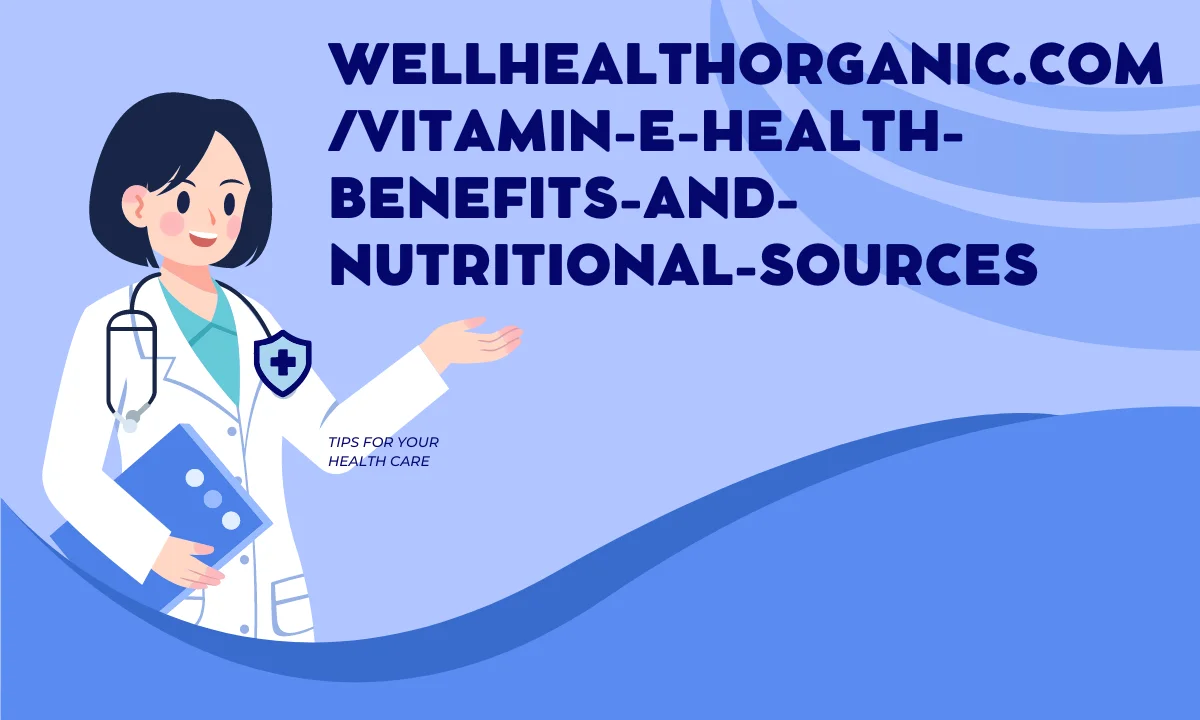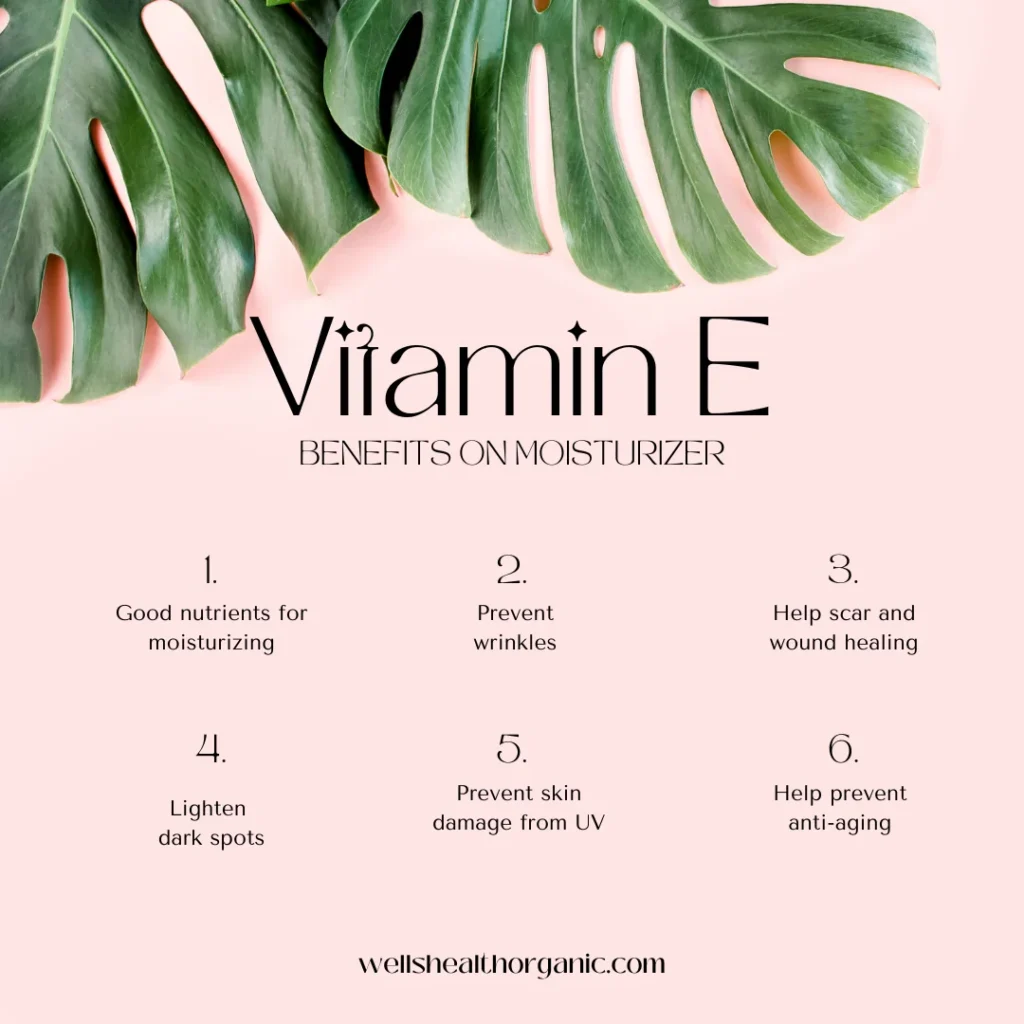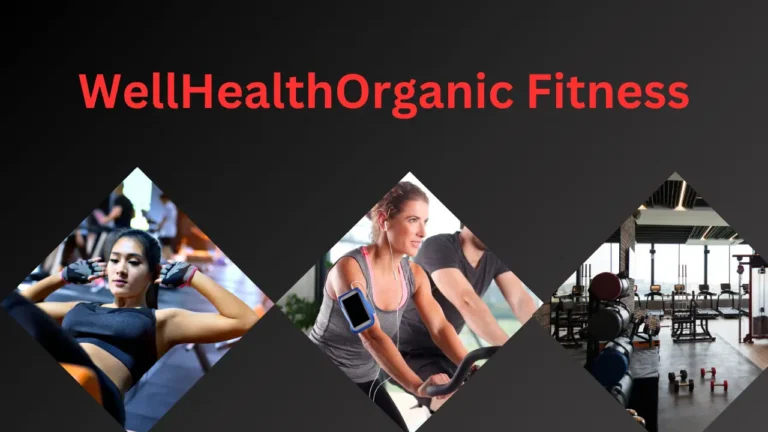Wellhealthorganic.com/Vitamin-e-Health-Benefits-And-Nutritional-Sources

Vitamin E is a powerful antioxidant that plays a crucial role in maintaining overall health. Found in various foods and supplements, this essential nutrient protects cells from damage, supports immune function, and promotes healthy skin. Understanding the health benefits and nutritional sources of Vitamin E is essential for incorporating it effectively into your diet. To learn more about this topic, you can visit wellhealthorganic.com/vitamin-e-health-benefits-and-nutritional-sources.
What is Vitamin E?
Vitamin E is a fat-soluble vitamin, meaning it is absorbed along with fats in your diet and stored in your body’s fatty tissues. It exists in eight different forms, but alpha-tocopherol is the most active form in humans. This form of Vitamin E is essential for many physiological functions and is the type most commonly found in supplements and fortified foods. For a detailed overview, wellhealthorganic.com/vitamin-e-health-benefits-and-nutritional-sources provides valuable insights.
The Health Benefits of Vitamin E
Vitamin E offers several health benefits that are vital to maintaining a healthy lifestyle.
- Antioxidant Properties: Vitamin E acts as a powerful antioxidant, protecting your cells from damage caused by free radicals. Free radicals are unstable molecules that can cause oxidative stress, leading to chronic diseases such as cancer and heart disease.
- Immune System Support: This vitamin is essential for maintaining a robust immune system. It enhances immune function by supporting the production of T-cells, which are crucial for fighting infections and diseases.
- Skin Health: Vitamin E is widely known for its benefits to the skin. It helps in repairing damaged skin tissues, reducing the appearance of scars, and preventing the signs of aging. It is also used in many skincare products due to its moisturizing properties.
- Eye Health: Consuming adequate Vitamin E can help reduce the risk of age-related macular degeneration, a leading cause of blindness in older adults. Its antioxidant properties protect the eyes from oxidative damage.
- Heart Health: Some studies suggest that Vitamin E may help prevent heart disease by inhibiting the oxidation of LDL cholesterol, which can lead to plaque buildup in the arteries. This effect can reduce the risk of heart attacks and strokes.
For a comprehensive list of benefits and further information, wellhealthorganic.com/vitamin-e-health-benefits-and-nutritional-sources offers an in-depth guide.
Which Foods Help to Boost Vitamin E Levels in the Body?
Ensuring you get enough Vitamin E is essential for maintaining your overall health, and the best way to do this is through your diet. Here are some foods that are particularly rich in Vitamin E and can help boost your intake:
1. Nuts and Seeds
- Almonds: One of the best sources of Vitamin E, with just an ounce providing about 7.3 mg of Vitamin E.
- Sunflower Seeds: These seeds offer approximately 7.4 mg of Vitamin E per ounce, making them an excellent snack for boosting your Vitamin E intake.
- Hazelnuts: Another great option, providing around 4.3 mg of Vitamin E per ounce.
2. Vegetable Oils
- Wheat Germ Oil: A powerhouse of Vitamin E, offering an impressive 20.3 mg per tablespoon.
- Sunflower Oil: Contains about 5.6 mg of Vitamin E per tablespoon, making it a healthy cooking choice.
- Safflower Oil: Provides around 4.6 mg of Vitamin E per tablespoon.
3. Leafy Green Vegetables
- Spinach: Cooked spinach is not only rich in iron but also offers about 3.7 mg of Vitamin E per cup.
- Swiss Chard: Another leafy green that provides a good dose of Vitamin E, with about 3.3 mg per cup when cooked.
4. Fruits
- Avocado: This nutrient-dense fruit provides about 2.7 mg of Vitamin E per avocado, making it a versatile and delicious way to boost your intake.
- Kiwi: While not as high as other sources, kiwi still offers a small amount of Vitamin E and is a great addition to your fruit intake.
5. Fortified Foods
- Cereals: Many breakfast cereals are fortified with Vitamin E, offering an easy way to start your day with this essential nutrient.
- Juices: Some fruit juices, particularly orange juice, are fortified with Vitamin E, providing an additional source.
Incorporating these foods into your daily meals can significantly help you meet your Vitamin E requirements. Whether through snacking on nuts and seeds, cooking with vitamin-rich oils, or adding more leafy greens and fruits to your diet, you can easily enhance your Vitamin E levels. For more ideas and recipes, visit wellhealthorganic.com/vitamin-e-health-benefits-and-nutritional-sources.

Nutritional Sources of Vitamin E
Incorporating Vitamin E-rich foods into your diet is crucial for reaping its health benefits. Below is a table of common foods that are excellent sources of Vitamin E:
| Food Source | Vitamin E Content (mg per serving) |
|---|---|
| Sunflower Seeds | 7.4 mg (per ounce) |
| Almonds | 7.3 mg (per ounce) |
| Spinach | 3.7 mg (per cup, cooked) |
| Avocado | 2.7 mg (per avocado) |
| Wheat Germ Oil | 20.3 mg (per tablespoon) |
| Hazelnuts | 4.3 mg (per ounce) |
| Peanut Butter | 2.5 mg (per tablespoon) |
These foods are readily available and can be easily incorporated into daily meals. For example, you can add sunflower seeds to your salads, use wheat germ oil in cooking, or snack on almonds and hazelnuts. Avocados make a great addition to sandwiches and smoothies, while spinach can be used in various dishes, from soups to stir-fries. Peanut butter is a convenient source of Vitamin E and can be spread on whole-grain bread or added to smoothies.
To explore more nutritional sources of Vitamin E, check out wellhealthorganic.com/vitamin-e-health-benefits-and-nutritional-sources.
How Much Vitamin E Do You Need?
The recommended daily intake of Vitamin E varies by age and gender. For most adults, the recommended amount is 15 milligrams (22.4 IU) per day. Pregnant and breastfeeding women may need slightly more to support the health of both mother and child. It’s important to get enough Vitamin E from your diet, but supplementation may be necessary for some individuals, especially those with certain medical conditions that impair fat absorption.
However, it’s also crucial not to consume excessive amounts of Vitamin E, as it can lead to adverse effects, including an increased risk of bleeding. Therefore, it’s always best to consult with a healthcare provider before starting any supplement regimen. More details on the appropriate dosage can be found at wellhealthorganic.com/vitamin-e-health-benefits-and-nutritional-sources.
Benefits and Non-Benefits of Vitamin E
Vitamin E is a vital nutrient with numerous health benefits, but like any supplement, it has its pros and cons. Below is a breakdown of the benefits and potential drawbacks of Vitamin E.
Benefits of Vitamin E
- Antioxidant Properties
- Vitamin E acts as a powerful antioxidant, neutralizing free radicals that can cause oxidative stress and damage cells. This protective role helps reduce the risk of chronic diseases, such as cancer and heart disease.
- Immune System Support
- Vitamin E enhances immune function by supporting the production of T-cells, which are essential for fighting off infections and diseases. This makes it crucial for maintaining a robust immune system.
- Skin Health
- Known for its skin benefits, Vitamin E helps repair damaged skin tissues, reduces the appearance of scars, and prevents signs of aging. Its moisturizing properties make it a common ingredient in skincare products.
- Eye Health
- Consuming adequate Vitamin E can lower the risk of age-related macular degeneration, a leading cause of blindness in older adults. Its antioxidant properties protect the eyes from oxidative damage.
- Heart Health
- Some studies suggest that Vitamin E may help prevent heart disease by inhibiting the oxidation of LDL cholesterol, which can lead to plaque buildup in the arteries, thus reducing the risk of heart attacks and strokes.
- Anti-Inflammatory Effects
- Vitamin E has anti-inflammatory properties that can help reduce inflammation in the body, benefiting conditions such as arthritis and other inflammatory diseases.
Also Read: The Benefits of Theapknews.shop Health & Beauty
Non-Benefits (Potential Drawbacks) of Vitamin E
Overconsumption Risks
- Taking too much Vitamin E, especially in supplement form, can lead to toxicity. Excessive intake may cause nausea, headaches, fatigue, and even bleeding due to its blood-thinning effects.
Interaction with Medications
- Vitamin E can interact with certain medications, such as blood thinners (e.g., warfarin), increasing the risk of bleeding. It’s essential to consult a healthcare provider before starting a Vitamin E supplement if you are on medication.
Inconsistent Research Findings
- While Vitamin E is linked to numerous health benefits, some research has shown mixed results, particularly in its effectiveness in preventing certain chronic diseases. This inconsistency can make it challenging to determine its true impact on long-term health.
Not Effective for Everyone
- The benefits of Vitamin E may not be equally effective for everyone. For instance, individuals with specific genetic conditions may not absorb or metabolize Vitamin E efficiently, rendering supplementation less effective.
Risk of Excessive Supplementation
- High doses of Vitamin E supplements have been associated with an increased risk of prostate cancer in men, as well as an elevated risk of hemorrhagic stroke. This underscores the importance of adhering to recommended dosage guidelines.
Potential Allergic Reactions
- Some individuals may experience allergic reactions to Vitamin E, particularly when applied topically in skincare products. Symptoms can include skin irritation, redness, and itching.
Conclusion
Vitamin E is a vital nutrient that offers numerous health benefits, from protecting cells against oxidative damage to supporting immune and skin health. Including Vitamin E-rich foods in your diet is an easy and effective way to ensure you meet your daily requirements. Foods like sunflower seeds, almonds, spinach, and avocados are excellent sources of this nutrient.
For more information on the benefits and sources of Vitamin E, and to learn how to incorporate it into your daily routine, visit wellhealthorganic.com/vitamin-e-health-benefits-and-nutritional-sources. This resource provides valuable insights that can help you maintain a balanced diet and promote overall wellness.
Remember, while Vitamin E is essential, it is just one part of a healthy diet. Make sure to combine it with other nutrients to achieve optimal health. For more tips on living a healthy lifestyle, keep exploring wellhealthorganic.com/vitamin-e-health-benefits-and-nutritional-sources.
Also Read: Comprehensive Guide to the SBI Health Insurance Premium Chart PDF






